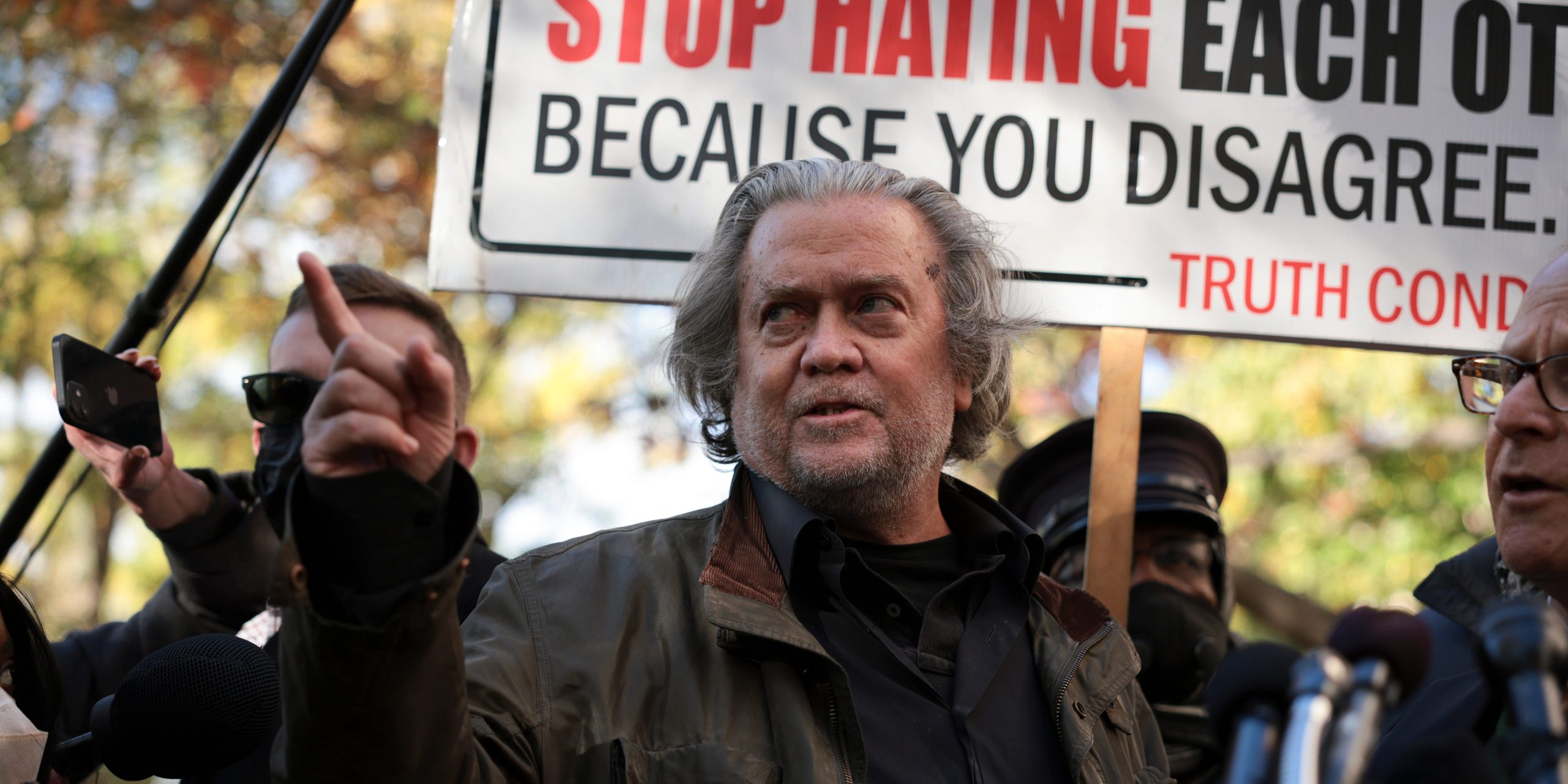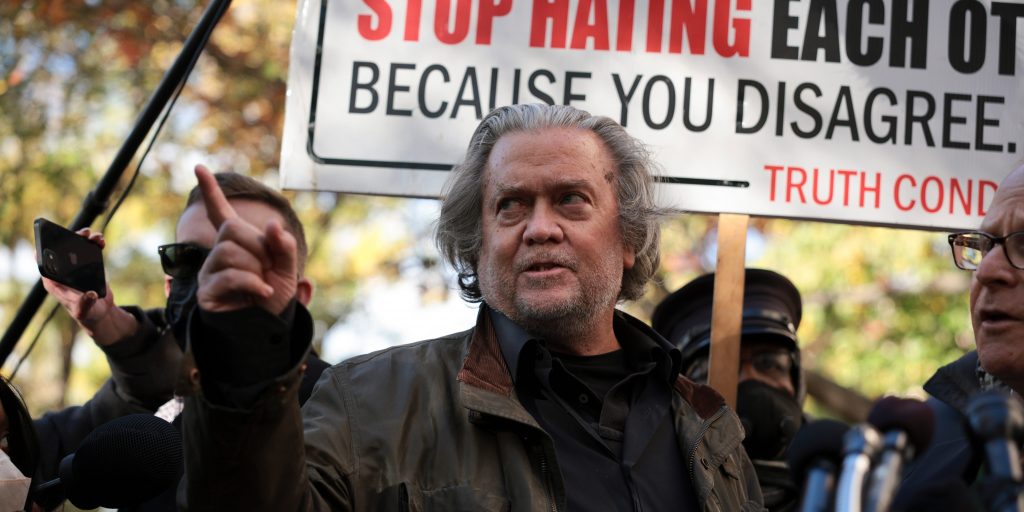
- A federal judge set a trial date of July 2022 for former White House chief strategist Steve Bannon.
- Bannon faces two criminal contempt of Congress charges.
- He's one of several Trump allies who refused to comply with subpoenas from the Jan. 6 committee.
A federal judge on Tuesday set a July 2022 trial date for former White House chief strategist Steve Bannon, who faces two criminal charges of contempt of Congress.
Judge Carl Nichols, a 2019 appointee to the federal trial court in Washington, DC, set the trial to begin July 18 after hearing dueling arguments from prosecutors and Bannon's defense team over the proper pace for the criminal proceedings.
In a joint filing Monday evening, prosecutors asked for the trial to begin no later than April 15, while Bannon's defense team proposed a date six months later — October 17. Nichols said an April trial date would require an "extremely fast" briefing schedule, but also viewed Bannon's proposed schedule as overly drawn-out.
"I do think the defendant's proposal of an October trial date is too slow and too long from today," Nichols said.
The Justice Department charged Bannon last month after he refused to comply with a subpoena issued by the House Select Committee investigating the January 6 Capitol riot. He rejected the committee's demand that he sit for a deposition and produce relevant documents. The panel moved to pursue criminal contempt charges against him in October.
The Justice Department has previously declined to enforce criminal contempt referrals, but both Democrats and Republicans on the select committee said they hoped that would change under the Biden administration.
The department said in the Monday court filing that it expects to be able to present the case against Bannon in a single day. Bannon's defense lawyers said their "best estimate" was that the trial would last about 10 days.
Bannon is not the only associate of former President Donald Trump who's failed to comply with the January 6 select committee's investigation. After weeks of back and forth, an attorney for former White House chief of staff Mark Meadows said in a letter sent to lawmakers on Tuesday that his client would not cooperate with the select committee's inquiry until the courts resolve issues related to Trump's assertion of executive privilege over matters related to the committee's investigation.
Rep. Adam Schiff of California, a member of the January 6 investigatory panel, said last week that Meadows undermined his own argument for withholding information from the committee because he wrote about matters related to the Capitol riot in his new memoir.
The select panel also moved last week to recommend criminal charges against Jeffrey Clark, a former top Trump appointee at the Justice Department. Clark's attorney informed lawmakers that his client intends to invoke his 5th amendment right against self-incrimination. He was scheduled to appear before the committee to formally assert that claim on December 16, but the hearing was postponed after Clark's lawyer said his client had an extenuating medical circumstance.
